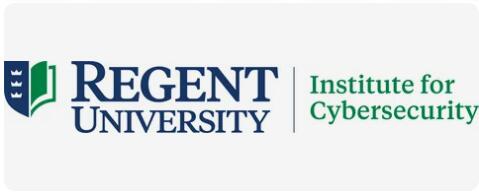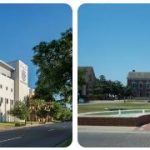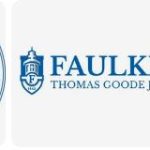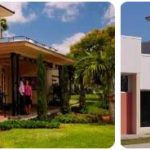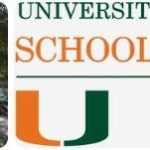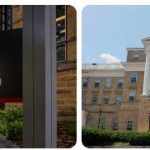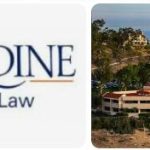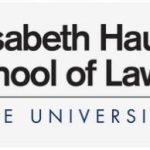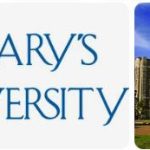Regent University School of Law was established in 1986 by televangelist Pat Robertson. It was initially named the Christian Broadcasting Network University School of Law, and was located in Virginia Beach, Virginia. The school’s mission was to provide a quality legal education with a focus on Christian values. It offered courses in areas such as constitutional law, business law, international law, and criminal justice. In 1990, the school changed its name to Regent University School of Law to better reflect its mission and commitment to excellence. Over the next decade, the school expanded its faculty and curriculum to include courses in family law, intellectual property law, tax law, and environmental law. The school also became a member of the Association of American Law Schools in 1995. Today, Regent University School of Law is ranked among the top 100 best law schools by U.S. News & World Report and is consistently recognized for its high-quality legal education programs. It remains committed to providing an excellent legal education that combines faith-based principles with rigorous academic standards. The faculty at Regent consists of highly respected scholars from around the world who are dedicated to helping students reach their full potential as legal professionals. Students benefit from small class sizes and individualized attention from professors who are committed to their success. Additionally, Regent offers numerous opportunities for students to gain practical experience through internships with local attorneys and organizations as well as externships with federal judges throughout the country.
Regent University School of Law is located in the state of Virginia. As one of the leading law programs, Regent University School of Law has a high average LSAT score of 150-157 when recruiting new students. As a return, the median starting salary for law graduates reaches $45,000 per year. See the following table for detailed admissions information and career profiles of Regent University School of Law.
Admissions: Regent University
Regent University School of Law is one of the top-ranked law schools in the United States. The school admits students from all across the country, and is highly competitive. The admissions process is rigorous and requires a strong academic record, LSAT score, and personal statement. In 2020, Regent accepted just over 50% of its applicants for admission. Of those admitted, approximately 46% were female and 54% were male. Approximately 20% of admitted students identified as members of minority groups. The median LSAT score for accepted applicants was 156, with a range from 144 to 166. The median GPA for accepted applicants was 3.40, with a range from 2.60 to 3.90. In addition to these core requirements, Regent University School of Law also takes into consideration extracurriculars, work experience and other factors when evaluating applications for admissions.
| Fall 2019 Admissions and Enrollment Statistics | |
|---|---|
| Total number of full- and part-time applicants | 874 |
| Total number of full- and part-time acceptances | 368 |
| Overall acceptance rate | 42.1% |
| Total number of full- and part-time first-year students enrolled | 162 |
| Number of full-time program applicants | 786 |
| Number of full-time program acceptances | 351 |
| Full-time acceptance rate | 44.7% |
| Number of first-year full-time students enrolled | 152 |
| Number of part-time program applicants | 37 |
| Number of part-time program acceptances | 17 |
| Part-time acceptance rate | 45.9% |
| Number of first-year part-time students enrolled | 10 |
| Fall 2019 GPA and LSAT Scores | |
| 25th-75th percentile GPA scores for all students | 3-3.71 |
| 25th-75th percentile LSAT scores for all students | 150-156 |
| 25th-75th percentile undergraduate GPA for full-time students | 3-3.71 |
| 25th-75th percentile LSAT scores for full-time students | 150-157 |
| 25th-75th percentile undergraduate GPA for part-time students | 2.96-3.67 |
| 25th-75th percentile LSAT scores for part-time students | 148-153 |
Careers: Regent University
| Bar Statistics (Winter and Summer 2018 administrations) | |
|---|---|
| State where the greatest number of first-time test takers took the bar | VA |
| School’s bar passage rate for first-time test takers | 73.1% |
| Statewide bar passage rate for first-time test takers | 81.6% |
| Class of 2018 Graduates | |
| Total graduates | 159 |
| Graduates employed at graduation | 67.5% |
| Graduates known to be employed nine months after graduation | 94.4% |
| Starting Salaries of 2018 Graduates Employed Full-time | |
| 25th percentile private sector starting salary | $40,000 |
| Median private sector starting salary | $45,000 |
| 75th percentile private sector starting salary | $53,500 |
| Percent in the private sector who reported salary information | 54% |
| Median public service starting salary | $48,000 |
| Areas of Legal Practice (Class of 2018) | |
| Percent employed in academia | 5.0% |
| Percent employed in business and industry | 11.4% |
| Percent employed in government | 19.3% |
| Percent employed in all judicial clerkships | 11.4% |
| Percent employed in law firms | 42.9% |
| Percent employed in public interest | 8.6% |
| Percent employed in an unknown field | 1.4% |
| Percent employed in a judicial clerkship by an Article III federal judge | 2.0% |
| 2018 Graduates Employment Location | |
| Graduates employed in-state | 44% |
| Graduates employed in foreign countries | 1% |
| Number of states where graduates are employed | 25 |
| New England (CT, ME, MA, NH, RI, VT) | 1.4% |
| Middle Atlantic (NY, NJ, PA) | 3.5% |
| East North Central (IL, IN, MI, OH, WI) | 6.4% |
| West North Central (IA, KS, MN, MO, NE, ND, SD) | 2.1% |
| South Atlantic (DE, DC, FL, GA, MD, NC, SC, VA, WV) | 57.8% |
| East South Central (AL, KY, MS, TN) | 2.8% |
| West South Central (AR, LA, OK, TX) | 1.0% |
| Pacific (AK, CA, HI, OR, WA) | 1.4% |
| Mountain (AZ, CO, ID, MT, NV, NM, UT, WY) | 3.5% |
| Employment location unknown | 19.0% |
| Career Services | |
| (Data appear as originally submitted by this school) | |
| Career services operations | The Office of Career and Alumni Services offers professional development guidance to students and alumni. Workshops & individualized counseling sessions allow students to learn about career options and develop networking and interviewing skills. The office hosts on-campus interviews and sponsors events with the goal of bringing students, alumni, and members of the legal community together. |
| Job Type | |
| Bar admission required or anticipated (e.g., attorney and corporate counsel positions, law clerks, judicial clerks) | 75.0% |
| J.D. preferred, law degree enhances position (e.g., corporate contracts administrator, alternative dispute resolution specialist, government regulatory analyst, FBI special agent) | 18.0% |
| Professional/other (jobs that require professional skills or training but for which a J.D. is neither preferred nor particularly applicable; e.g., accountant, teacher, business manager, nurse) | 5.0% |
| Nonprofessional/other (job that does not require any professional skills or training or is taken on a temporary basis and not viewed as part of a career path) | 1.0% |
